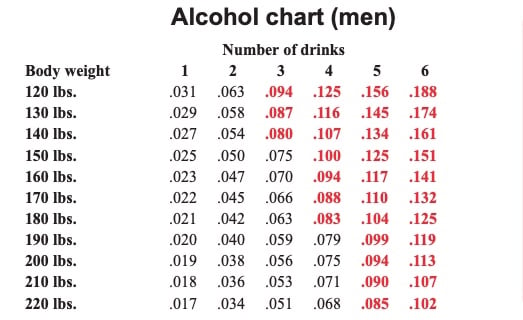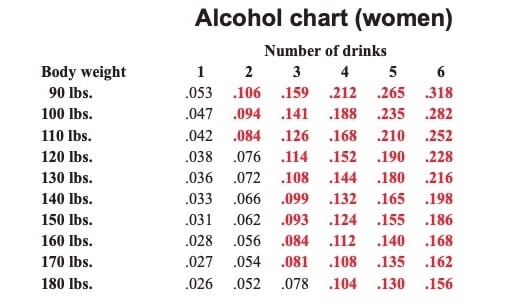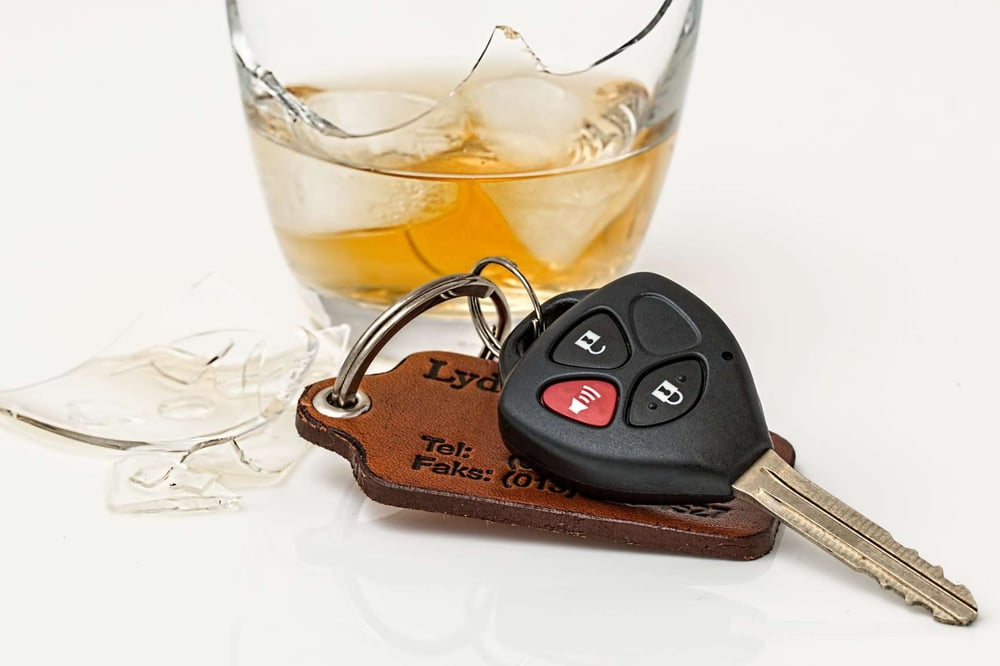"How many drinks does it take before I'm legally incapable of driving?"
While the question may be a common one, it’s actually very difficult to answer. The truth is, no matter what you might have heard, there is no exact method for determining how much a person has to drink in order to reach the .08 BAC limit here in Wisconsin.
While a person’s body may process alcohol one way, someone else’s body may process the same amount of alcohol much differently.
Although there is no hard-and-fast way to determine how many drinks will bring you to the legal limit, there are ways to approximate your limit based on things like weight, how much you’ve had to drink, biological sex, and how long you’ve been drinking.
Before I go any further, I want to be perfectly clear that these approximate methods are by no means a definite way to determine whether or not you’ve had too much to legally drive in Wisconsin. They're only meant as tools for estimating.
Read Also: 15 Ways to Beat a Drunk Driving Case in Wisconsin
How Much is One Serving of Alcohol?
To gauge whether you're over the legal limit, you need to know how many servings of alcohol you've had.
With all the different types of drinks that exist, this can be hard to pin down. After all, an 8 oz. glass of beer has far less alcohol than an 8 oz. glass of hard liquor.
Generally, one serving of alcohol is equal to about:
- 1 oz. of 100-proof hard alcohol,
- 12 oz. of beer, or
- 4 oz. of table wine
Blood Alcohol Charts
The Wisconsin DOT made the following charts to help you guess whether you're over the legal limit based on weight, biological sex, and number of drinks.


How to Estimate BAC Level Based on Weight, Time, and Amount Consumed
Typically, the smaller your size, the less alcohol it will take to get you to the .08 BAC limit. Even with this in mind, rapidly drinking three servings of alcohol will most likely put you over the legal limit no matter what size you are.
For a slightly more specific rule of thumb, remember the following guidelines (but keep in mind these are by no means definite rules):
- For those who weigh somewhere around the 100 lbs. mark, it’s possible that just one serving of alcohol could put you above the .08 limit.
- For those who are in the ballpark of 160 lbs., the legal limit usually is met somewhere around three servings. For higher body weights, this scale can be extended even further.
Your blood alcohol level (BAC) also depends on the amount of time you’ve been drinking. Typically, if you’ve been drinking over the span of a few hours, your blood alcohol level will be lower than if you had the same amount to drink in just an hour or less.
A common method used to calculate approximate BAC levels over time is to subtract .01% for each 40 minutes that go by without another drink.
If you are a commercial driver, repeat OWI offender or a minor, you will be held to an even stricter blood alcohol level requirement.
What Else can Impact an Individual’s Blood Alcohol Level (BAC)?
In addition to the factors I just explained, there are a few other considerations that can affect your BAC at any given time:
- Tiredness/Fatigue: If your body is exhausted, it will likely take longer to process any intoxicants you consume. In addition to blood alcohol content, fatigue can have a huge impact on your judgment just like alcohol consumption. Mixing the two can be disastrous.
- Food: For most people, consuming alcohol on an empty stomach can significantly increase blood alcohol levels compared to doing so after having a meal.
- Medication: Many medications can have adverse side effects when taken with alcohol which can greatly impair your ability to drive or operate any kind of vehicle. Check for warning labels on each of your medications—both prescriptions and over-the-counter—before consuming alcohol at the same time.
Read Also: Auto-Brewery Syndrome as an OWI Defense in Wisconsin
What to do if You've Been Arrested for Drunk Driving
No matter what the circumstances of your OWI arrest, it’s crucial to contact an experienced Madison OWI lawyer immediately. Experienced attorneys have seen cases like yours before and can help you craft a defense strategy that works. OWI laws can be complex and confusing, but OWI attorneys can help you find the best path forward.
Read Also: The Consequences of Your First OWI in Wisconsin
Proven Wisconsin OWI Defense Since 1991
Working from his office in Madison, as well as Hayward, Criminal Defense Attorney Patrick J. Stangl has extensive experience defending clients accused of operating while under the influence of an intoxicant and other drunk driving charges. Attorney Stangl takes each case he defends seriously and is committed to fighting for the best result possible for his clients.
If you're facing repeat OWI charges in Wisconsin, or if this is your first drunk driving arrest, Attorney Stangl can help. Click the link below for a FREE 10-minute consultation to discuss your case and explore options for your defense.
Stangl Law Offices, S.C.



